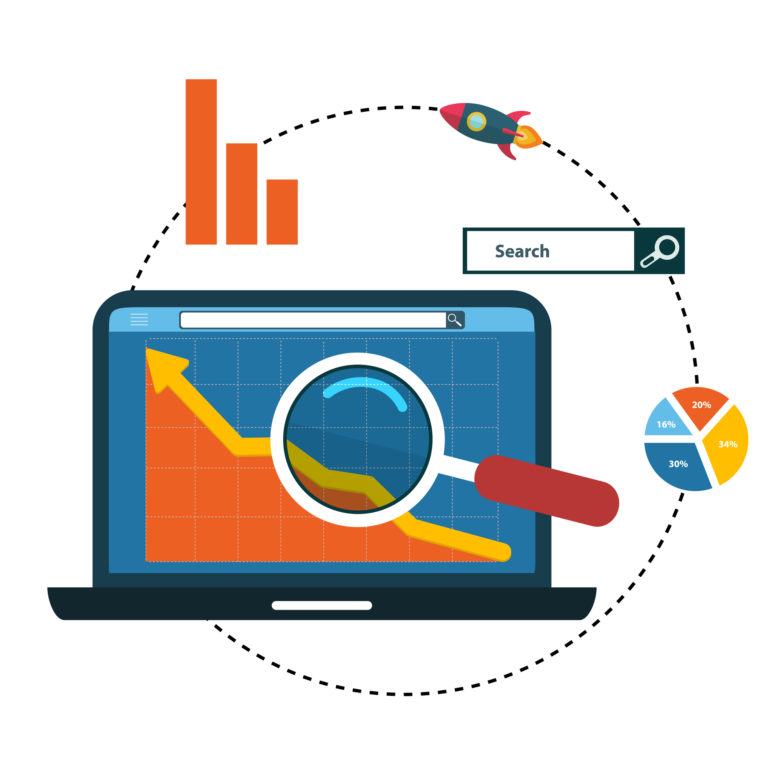It’s tempting to opt for a basic package with the likes of Wix or Weebly, or other DIY website builders. But those initial outlays may end up costing you far more in the long run. Here’s why.
As of May 2021, Wix hosts a (rather incredible) 160 million websites. Those 160 million people can’t be wrong, can they? I mean, it’s hard not to become mesmerized with their visually impressive layouts, their image library, and their user-friendly attributes.
For the majority of people, Wix can provide everything required for gaining some e-commercial attention. You can select from a series of flexible templates when setting your website up, feel comforted by the automatic site backup, and allow the Wix Artificial Design Intelligence (ADI) to lead you through website creation.
More Blogs From Direct Response PT
People Say That SEO Is No Longer Relevant – Is SEO Dying?
12 Reasons Your Physical Therapy Business Needs SEO
Why You’d Benefit from a Subscription-Based Website
However, if you delve behind the headlines, things aren’t quite so rosy. For starters, templates cannot easily be changed. From my own encounters, and listening to the experiences of others, once you have selected your initial Wix template, you’d better be happy with it!
Why so?
You cannot switch to a completely new one once the website has been published. There is the option to change the design within the template itself; still, you are confined within the parameters of that exact template. It doesn’t seem possible to pick a fresh one. Not at the moment, anyway.
According to research undertaken by WebsiteToolTester, website loading speed remains an issue for any Wix site – especially relating to mobile websites. Of all the major CMS sites out there, Wix came stone-dead last when compared alongside with the competition.
It’s not as if Wix is the cheapest host out there, either. The basic package is limited to 2GB of bandwidth, which is rarely enough for most sites. It’s a clever way to ensure you upgrade and remain dependent on them for years to come.
However, don’t assume that Wix doesn’t serve a purpose. It does. Wix includes almost everything you need for e-commerce and allows those who don’t possess savvy coding skills to create an online business presence. But it does have its limitations.
And, if you are relying on your website to capture traffic and new clients, these limitations can cost you revenue and profit.
So what about the likes of GoDaddy, Weebly, Squarespace, and other DIY site builder platforms?
Are they just as limited?
The Limitations of DIY Website Builders
While DIY site builder platforms open the digital portal to those who don’t have the necessity or knowledge to build a website from scratch, there are a few factors to bear in mind.
Firstly, DIY site builder platforms very rarely offer room for your business to grow. By signing up to a host, you won’t get a server to yourself. You’ll be sharing – with thousands of other customers.
If your website proves popular – or goes viral for whatever reason – you will be constrained and perhaps even financially penalized for exceeding your resource threshold.
Shared servers are liable to crash when supporting shared hosting, with a constant performance threat depending on the number of users depending on any one server at any given time.
Then there is the security protection to consider. While security is continuously improving, with hosting firms taking online data protection very seriously, sharing a server is always at the customer’s behest.
What I mean is, it only takes one not-so-professional individual to ruin it for everyone else, with improper usage or sordid intentions.
There is always the risk of sharing server space with an unscrupulous hacker. Sadly, infiltrating a DIY site builder platform yields beneficial results for digital criminals, as those legitimately using the platform are often unknowing about the dangers of online activity. That’s precisely why they have turned to a site builder option in the first place.
For those who simply use the internet and pay no heed to current technological trends and threats, it’s often all over before they release what’s going on. The structure of shared servers, where all you need is an email address to sign up and gain access, renders itself a permanent target to internet villains.
That said, it’s not always hackers at play. Some packages allow users to access extra design features that are ultimately complex and can stir up mayhem on the server quite by accident. Especially if people don’t fully understand what they are playing with.
Furthermore, you don’t have complete control of all the required SEO aspects.
Search Engine Optimization doesn’t just rely on title tags, imagery, meta descriptions, and content. SEO is also judged on coding – if there’s an excess of it or the quality is poor, you will only make it so far up the Google search rankings.
This is where site speed also comes into effect. If the platform’s page speed and core web vitals are lacking, you will fight a losing battle for your SEO. All of the SEO attributes that make up the larger picture are essential, and most DIY platforms do not allow full control.
The same can apply to tracking your audience figures, and leads. There is a common flaw where the likes of Weebly distort the true statistics because of conflicts in adding their own tracking code to your website’s foundations.
Such issues can make it almost impossible to achieve any transparency over your website’s performance. In turn, this makes planning for the future and implementing business strategy something of a pipedream.
The Real Cost
DIY site builder platforms seem like great value on the surface. You can design and publish your own website for the same cost as a round at Starbucks in some cases.
Basic packages are easy to figure out and are commonly straightforward to implement. The biggest attraction for people who don’t want to pay out large sums for a fully-controllable, built-from-scratch website is – undoubtedly – the introductory discount.
That honeymoon period won’t last any longer than 12 months, however. Those introductory rates will expire and (depending on the host) dramatically increase and push your hosting costs into realms of expense that does not justify the lack of control you have over your website.
If you honestly cannot justify having a website designed, built, and maintained by professionals, then we’d recommend that you study and compare DIY platforms and their pricing structures. Getting absorbed in the lowest prices possible can often yield financial shocks later down the line.
My honest advice to you is not to become reliant on these DIY site builder platforms. Unless your budget is minimal, opting for a DIY site builder service over a custom build is effectively shovelling money into a blast furnace.
One of the most significant aspects that dictate success for anyone promoting themselves online is customer usability. If your website doesn’t permit easy navigation and function for users, then your website is pretty much dead in the water.
As is so often the case, the templates that DIY site builder platform providers can offer do not always evoke confidence in a transaction or service due to the ‘quality’ and ‘feel’. Factors affecting trust range from page load speed (and all those pesky core web vitals), clunky page transitions, and internal linking. Not to mention any lack of multimedia.
All of the aspects that I’ve mentioned throughout this article can affect customer and client interaction. They all combine for an overall impression upon the user. If anything doesn’t feel right, it can lead to suspicion – even if you have only the best intentions – and an eventual lack of leads.
Gaining trust is paramount when you are in healthcare or a niche industry—your first impression matters. Therefore, if your website appears messy, clunky, thrown together, or lacklustre in any way, you can kiss your leads goodbye.
Furthermore, there can be trust issues with those who notice you have built your website using a DIY system. If you aren’t willing to invest in the impression/image of your business, where else are you cutting corners?
From a snob’s point of view, if the website seems rigid in its template format, this can result in distrust. Indeed, when a DIY site builder template is paired with stock imagery, how can clients determine that you are honest when everything appears either ‘fake’ or outdated?
That last point is one to heed. The internet doesn’t sit still for long. Website designs move forward, and not all DIY site builder templates can accommodate fresh or trending designs. That might not seem like a big deal, but you need to move with the times to gain the trust of new and potential clients. Remember – first impressions count!
So, while you think that you are saving money by paying as little as $20 per month, it’s actually costing you thousands of dollars in lost clients.
I feel pretty confident in saying that your website’s performance regarding onboarding clients determines success or failure, and DIY site builder websites can never perform to the same standard as bespoke creations.
Should I Host My Own Website?
Hosting your own website is a lot of work.
Besides selecting your domain (which needs to be available in the first place), and undertaking all the necessary coding, dealing with your file management, setting up security, battling the SEO landscape, and optimizing your hosting server, you also have to find time to keep everything updated. It’s a tall order, on top of your typical workday.
Does it feel like a conundrum?
DIY site builder websites don’t quite cut it, especially when in a niche business sector.
Creating your own custom website takes time and specialist knowledge.
What can you do?
That’s where we can help.
At Direct Response PT, we specialize in bespoke website creation, hosting, and all the trimmings – including Search Engine Optimization.
We have dozens of clients that we host for, having built their website in the first place. We remain committed to keeping pace with the moving target that is digital security, and also on all aspects around SEO.
We can help you gain the results that you need and take all that digital concern off your shoulders!
Think we can help you out? Get in touch with us!












